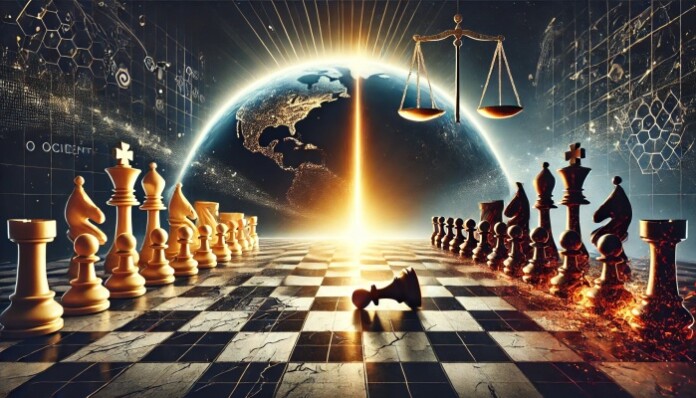For decades, the West held on to a well-intentioned — yet misguided — belief: that unrestricted market openness and industrial outsourcing would be offset by global peace and prosperity. Meanwhile, China quietly grew, amassing trade surpluses, centralizing production, maintaining state control, and consolidating a power that now openly challenges the global geopolitical balance.
That logic began to collapse when Donald Trump took office. His tariffs on Chinese goods, heavily criticized by mainstream Western media and globalist economic elites, proved to be more than just a protectionist move — they were a necessary brake on China’s aggressive, though silent, expansion into global dominance.
In her sharp and courageous analysis, journalist Karina Michelin highlights the direct impact of those tariffs: nearly 200,000 Chinese companies selling on Amazon collapsed, and estimates suggest that up to 100 million people may face unemployment in China. The so-called “emerging middle class” — once the regime’s internal stabilizer — is now falling apart.
Seen through the lens of Game Theory, this marks a break from a self-defeating cycle. The West, particularly the U.S., had been playing a cooperative role while China pursued an asymmetrical, self-serving strategy. As in the classic Prisoner’s Dilemma, the side that keeps cooperating while the other defects is bound to lose. Trump was the first to break that cycle. By doing so, he forced the global system to reassess its economic model.
What once appeared to be just another trade war is now clearly a civilizational pivot. The West is waking up — to the cost of dependency, the fragility of global supply chains, and the very real danger of surrendering sovereignty to a regime that does not share democratic values or respect for individual liberty.
China’s decline as the dominant manufacturing hub is only part of the story. What matters more is what it makes possible: the rediscovery of the need to produce, innovate, and protect national interests. This isn’t a return to naïve protectionism, but a realistic re-rooting in economic freedom built on productive sovereignty.
Yes, the process is costly. Inflation, trade tensions, and logistical challenges are real. But as Thomas Sowell once said, “There are no solutions, only trade-offs.” And this particular trade-off might be the most valuable in decades: giving up dependency in exchange for sovereignty — giving up fragility in exchange for resilience.
Karina Michelin closes her piece with a powerful insight: if Davos wins, we enter a world of technocratic control, depopulation agendas, and progress without a soul. But if a free West wins — even with all its imperfections — liberty still stands a chance.
This is not about idolizing politicians. It’s about recognizing that systems are being tested — and the decisions made now will shape the decades ahead. The game isn’t over. But for the first time in a generation, the West is back in play. And this time, it’s playing to win.


